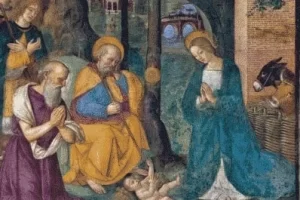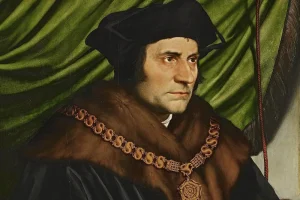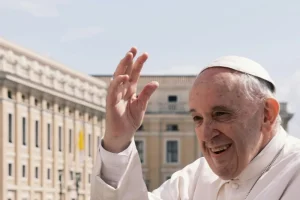This new article in the series Literature and Feelings deals with taste, will and desire, starting with Michael Ende’s The Neverending Story.
Table of contents
- Between taste and will
- Freedom Beyond Taste and Desire in Michael Ende
- Thinking about what you want
- Discovering true will from desire
- The role of intelligence in desire and tastes
Between taste and will
One of the experiences we most frequently encounter around us is the difficulty many of us have in differentiating between taste, desire and will, between the things we like and the things we really want.
Perhaps, as a reaction to the excessive rationalism of modern times, we have ended up falling into the opposite extreme, of excessive sentimentalism or emotivism, thinking that the relationship between taste and will is something direct, for instance: if I like it, then I want it; if I don’t like it, I don’t want it.
It is increasingly difficult to understand that, due to the very structure of the human being, there are things that we like and want, but it is also possible -moreover, it is quite common- that we carry out a series of acts that we do not like, and that we want to do them precisely because we really want another series of things that, in fact, we do not like very much.
Freedom Beyond Taste and Desire in Michael Ende
Is it possible then to live a life beyond tastes and desires? Is it possible that it may be proper for man, on some occasions and in some circumstances, to renounce his tastes precisely because only in this way can he achieve his true will?
This is one of the central arguments of Michael Ende’s “The Neverending Story”. Whoever is willing to save the Fantasy Kingdom will receive a talisman (Aurin) with the inscription: Do what you will. And if a person does what he really wants, he will end up saving the world, because he will save himself from his own selfishness. It sounds easy, but it really isn’t. It is the most difficult of all human tasks, as one of the characters will say at a certain point in the book.
Bastian showed the lion the inscription on the back of the ‘Jewel’.
– What does it mean? Do whatever you want. It must mean that I can do whatever I want, don’t you think? He said.
Graograman’s face suddenly became very serious and his eyes began to glow.
– No, he said in a deep and resounding voice. This means you must do your True Will. And nothing is more difficult than that.
– My True Will? -Bastian repeated. And what does that mean?
– It is your deepest secret, which you do not know.
– Then how can I know it?
– By following the path of desires, passing from one to another to the last. Thus you will be led to your True Will.
However, the question is not to know what I want, but to know if what I want will really be a right attitude. Am I not mistaken in considering good what is really bad? Am I not a victim of my imagination, of my prejudices or even of my whims?
Thinking about what you want
Truly human action is that which is deliberate and not that which is merely driven by tastes and desires.
– It doesn’t seem very difficult to me – said Bastian.
– It is the most dangerous of all paths,” said the lion.
– Why, asked Bastian. I am not afraid.
– That’s not the case, echoed the voice of Graograman. This path requires the greatest authenticity and attention, because nowhere else is it so easy to get lost forever.
– Does this mean that the desires we have are not always good? -asked Bastian.
(…) Bastian shuddered involuntarily when Graograman said, in a voice that made the floor vibrate:
– And what do you know about desires? What do you know about what is good or not?
Desires are basic tendencies. And they are immediate. We immediately feel good and bad desires. If we were only desiring beings, there would be no recrimination for the fact that we have satisfied our desire of the moment, whether good or bad.
Discovering true will from desire
When a lion kills a person to satisfy his hunger, or a dog bites someone, it does not seem necessary to open an investigation to verify the motive of his actions. It is different with men. It is the intervention of desire that explains the movement that gives rise to action, because intelligence, by itself, is incapable of moving, unless it considers as an end some object or action placed by desire. However, as Graograman said, desire is not enough, we need to discover our true will.
Desire is capable and made to move, but not to know if the object is good or bad, or more or less good or bad. Why? Because it is immediate. And it can only look for the here and now. However, this is not enough to know if what we are going to do is good or not, fair or not, convenient or not. Why? Because for that we need to look at our past and our future: who we are, what relationships we have, who can benefit, who will be harmed, whether or not it will be suitable for our family, for our dreams for the future… And desire has no answer for that.
The role of intelligence in desire and tastes
The human being has to consider all that his act implies, and not only the moment and the present taste. This is the role of the intelligence and the heart.
Intelligence enables man to see beyond the immediate desires and to deliberate on whether to fulfill them or not. Our intelligence, considering all that our act implies, our present, past and future, could even say that it would be convenient to do something that, although it is not to our taste, would be the most convenient and right thing to do. And then we will be able to do it or not and, to that extent, our will will be forged.
However, it is not enough to listen to the voice of intelligence. As we shall see, in addition, it is also necessary to listen to the voice of the heart. That is why the classics always thought that the main function of education was to educate the desires, the feelings and the heart.
This is what we will see in the next article.
Rafael Ruiz







0 Comments